8. Carol (2015)
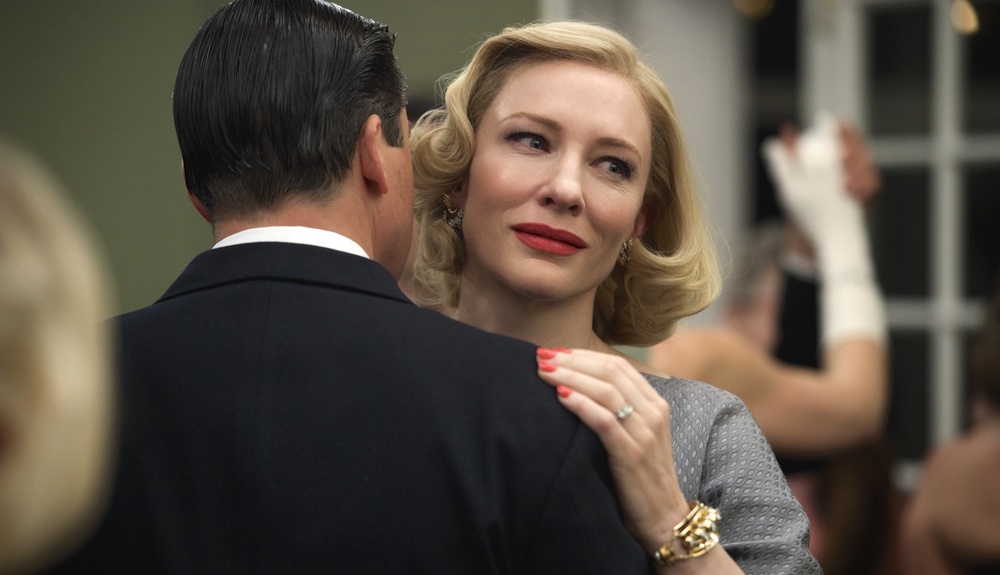
Adapted from Patricia Highsmith’s 1952 novel, “The Price of Salt”, and functioning as a sort of companion piece to director Todd Haynes 2002 film, Far From Heaven, Carol is an elegant and restrained lesbian love story for the ages.
Set in a post-war early-50s New York, the beating heart of Carol are the two formidable leads, Cate Blanchett and Rooney Mara. Carol Aird (Blanchett) may be a wealthy yet long suffering housewife, she still manages to be a scorching full-on screen-siren who recalls Dietrich or Garbo, all glamor and gravitation. Then there’s Therese Belivet (Mara), timid and tenderhearted, maybe even thin skinned, and the two of them, once smitten, are societal outcasts, vulnerable to assail and misunderstanding.
Haynes is stylish as ever, here tapping into some of the Old Hollywood éclat, making a postmodern melodrama that’s more than pastiche and is destined to win awards. An elegant, deliberate and poignant film, Carol ranks with Haynes finest work, an intoxicating and vibrant story of love and lament. A modern classic.
7. Call Me By Your Name (2017)
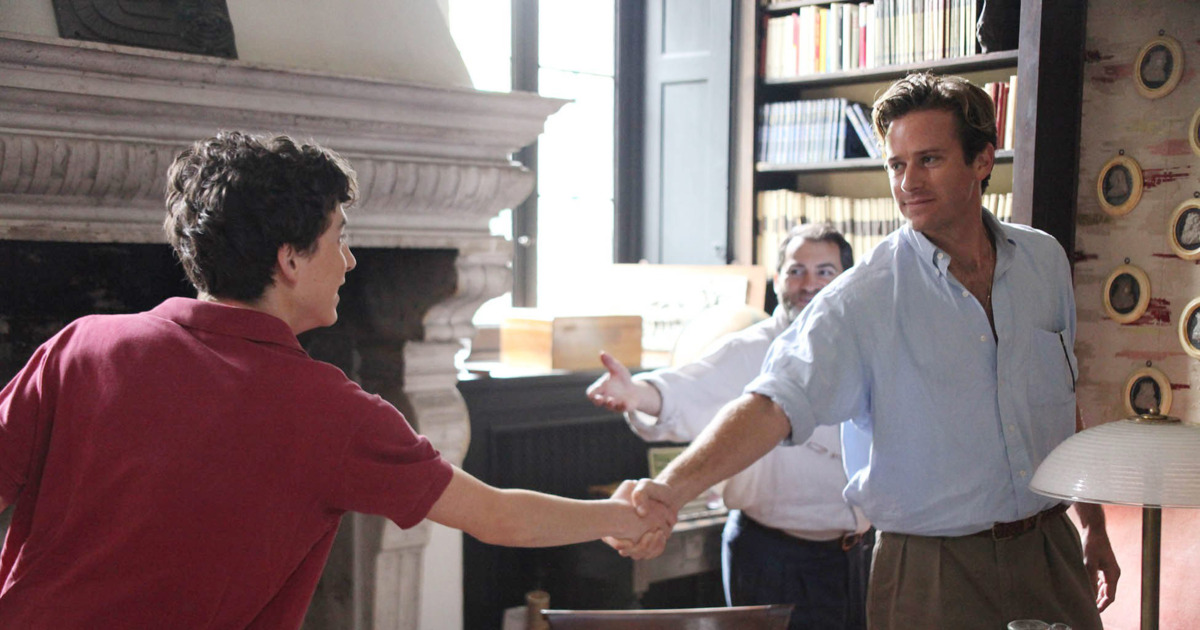
Luca Guadagnino’s Call Me By Your Name favors finesse, sparkle, and languid idle in this James Ivory scripted story (based off of André Aciman’s 2007 novel) of love, intimacy and longing between two men, and that said, never once does it feel any less than real and heart-rending.
An admirer of his fellow countryman Bernardo Bertolucci, it’s been suggested that Call Me By Your Name is Guadagnino’s Stealing Beauty, and that does ring rather true, it’s also the final entry in his thematic Desire trilogy, after I Am Love (2009) and A Bigger Splash (2015). Comparisons have also been drawn to 2016’s elegiac gay masterpiece Moonlight (also on this list), and that film’s director Barry Jenkins has said that “[Call Me Be Your Name] is a supremely delicate and humane work… An intellectually rigorous examination that never loses warmth.”
And warm it is as we get to know 17-year-old Elio Perlman (Timothée Chalamet), a Jewish American boy spending the endless-seeming summer days of 1983 with his family at their 17th-century villa in Lombardy, Italy. Enter the dreamy American Jewish grad student Oliver (Armie Hammer), who’s working as an intern for Elio’s archaeology professor father (Michael Stuhlbarg).
This is top tier art house cinema to be sure, and as fleeting as Elio and Oliver’s sun-soaked and starlit tryst may be, Call Me By Your Name will have you feeling every bit as cherished as they do. Superb.
6. The Tree of Life (2011)
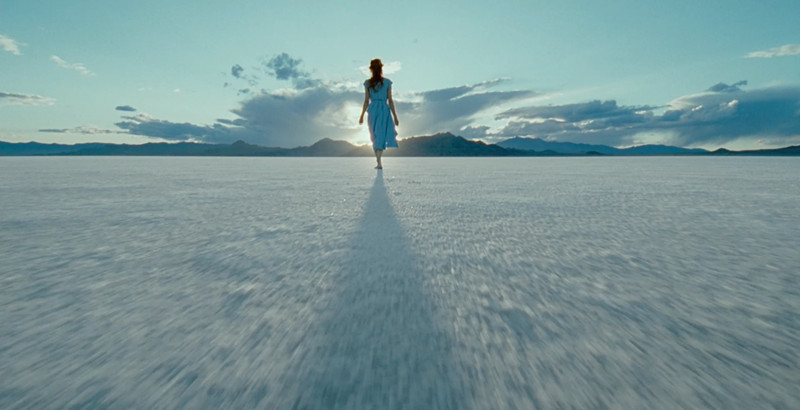
An achingly beautiful cinematic poem on love, life, and being, Terrence Malick’s ravishing, philosophical powerplay The Tree of Life is an unforgettable experimental epic.
Ostensibly the story of three brothers from a small town somewhere in Texas. Jack O’Brien has a contentious and difficult relationship with his father (Brad Pitt), but gets along well with his almost ethereal mother (Jessica Chastain). Later, as an adult, though the film is told in nonlinear fashion, Jack (Sean Penn) wrestles with his past while trying to come to terms with his childhood, while also combating feelings of existential panic.
“A mad and magnificent film,” raved The Guardian’s Peter Bradshaw, also praising Malick’s artful vision as an “unashamedly epic reflection on love and loss.”
In addition to the deeply spiritual and poetic grandeur of the film, the cinematography by Emmanuel Lubezki is ravishing and almost overwhelming when combined with Malick’s personal and exalted purpose.
The Tree of Life is the very definition of an art film, yes, it’s also one of the most gorgeous and moving treatise on modern man that you’re likely to find. I clearly recall staggering out of the cinema afterwards as a changed person, feeling transfigured and transformed by something alternately sorrowful, sublime, totally abject and also esoteric. And are these not the reasons why we experience cinema to begin with? The Tree of Life is a gorgeous and monumental sensory encounter.
5. The Irishman (2019)
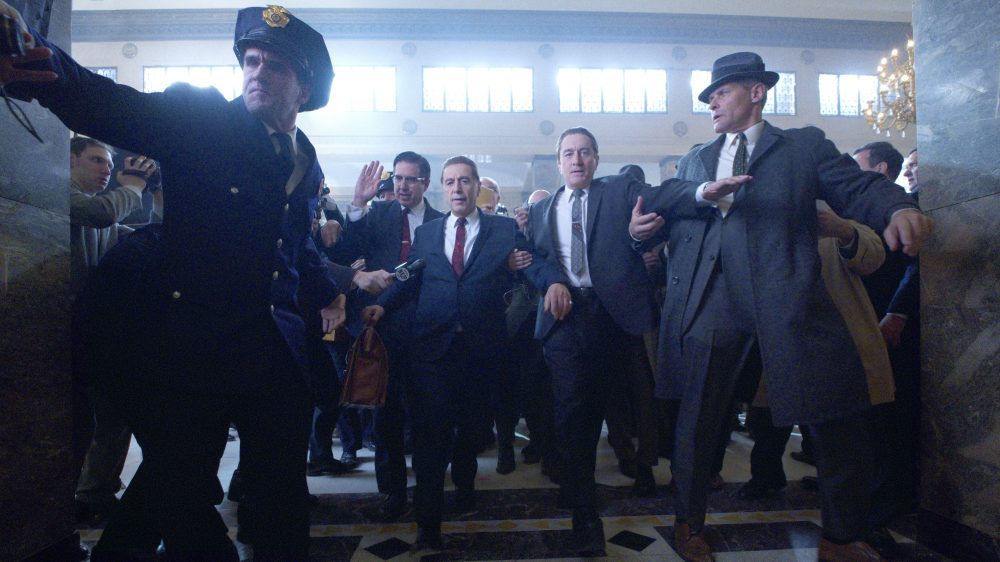
No one does the epic American crime drama quite like Marty and The Irishman may well be the genre’s elegiac swan song. And with all the mythic menace and nostalgic nuance on beautiful and blood-flecked display, it seems only suiting that Scorsese get the last say in the genus he perfected (the term “gangster film” is synonymous with his showpieces like Mean Streets [1973], Goodfellas [1990], and Casino [1995]), and it’s also a mighty fine way to finale a fine decade of films.
With a dream cast that includes Scorsese stalwarts Robert DeNiro and Joe Pesci along with Al Pacino, bobby Cannavale, Anna Paquin and Ray Romano, The Irishman adapts Charles Brandt’s 2004 best-selling true crime novel “I Heard You Paint Houses”.
Starting in the 1950s (the film spans over 40 years) as war veteran turned truck driver Frank Sheeran (De Niro) gets wrapped up with Russell Bufalino (Pesci) and his Pennsylvania crime family. Sheeran savagely climbs the ranks to become a top hit man, even at the cost of losing the love and respect of his wife and daughters. Eventually he goes to work for Jimmy Hoffa (Pacino), the legendary Teamster terminally tied to organized crime.
Alternately funny, frightening, poignant, and profound, The Irishman is an enthralling, entertaining, and deeply satisfying picture. Teeming with Scorsese’s signature frenetic pace and energy, this is a film that moves from emotional highs and lows with the momentum of a freight train as glamor and humor mesh with gritty reality and momentous fervor. Another indelible classic from an American master.
4. Inside Llewyn Davis (2013)
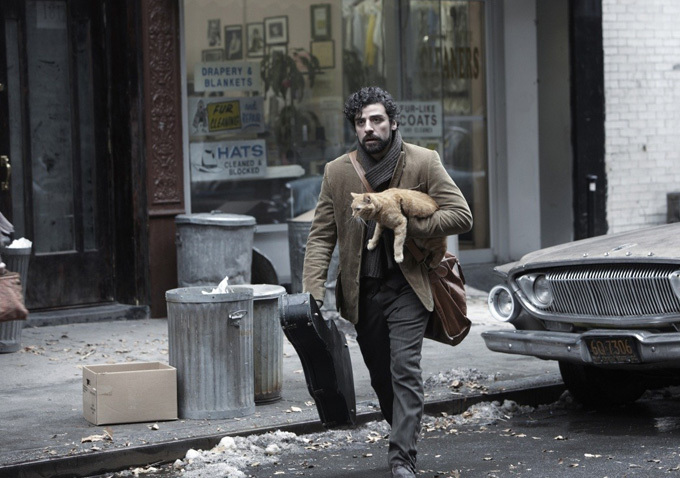
The 2010s have seen brothers Joel and Ethan Coen continue to make some of the most exciting, innovative, and thrilling films of their careers, and this out-of-nowhere left turn into the New York folk scene of the early 1960s, and the listless eponymous folk singer, Llewyn Davis (Oscar Isaac, superb) at its center may represent their finest cinematic outing to date.
Bolstered by French cinematographer Bruno Delbonnel (whose superb lensing history includes 2001’s Amélie, and 2009’s Across the Universe), Jess Gonchor’s faultless production design, and the Coen’s own impeccable editing prowess, Inside Llewyn Davis is all overcast skies, doleful folk, soured relationships, escaped cats, troubled troubadours, and all with no discernable direction home.
Of course the T Bone Burnett produced soundtrack helps make the bygone Greenwich Village vibe all the more embodied, fictional or not, and rarely has the New York winter looked so chill, while simultaneously being so eccentric. Astonishingly, the Coen’s have tapped into the deep well of clever and complex comedy à la Ernst Lubitsch, with compositions as eye-poppingly gorgeous as their greatest work, of which Inside Llewyn Davis ranks amongst.
3. Under the Skin (2013)
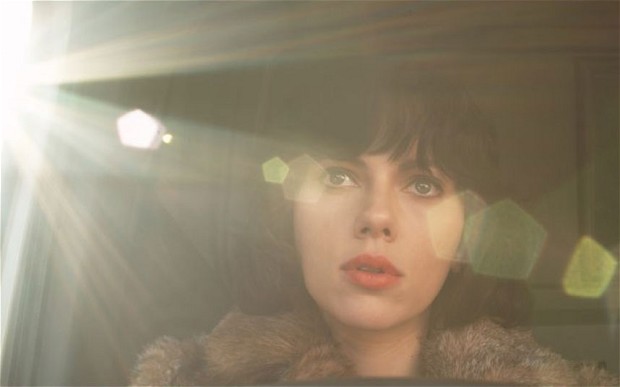
A deeply thoughtful and profoundly shocking exploration of civilization and humanity, Jonathan Glazer spent nearly a decade on this dark hearted epic. Comparisons to Stanley Kubrick and Andrei Tarkovsky are appropriate and easily supported, as are the carefully constructed visual sensibilities and quasi-documentary leanings of Claire Denis and Lynne Ramsay.
Loosely using author Michel Faber’s satirical 2000 sci-fi novel “Under the Skin” as the alpha of this deep, metaphysical and mercurial treatise on humanity, Glazer has surpassed expectation.
Scarlett Johansson is outstanding, she shines in a controlled and calculating process as she moves from childlike cherub to rouge-lipped iconoclast, all while saying very little. Seducing working-class blokes at random, she lures them into her alien lair with terrifying and deeply troubling results. Her motives remain unclear in what amounts to an unaffected nightmare.
Mica Levi’s score adds heft to Glazer’s artfully arranged visual compositions, culminating in a third act extravaganza of upset and intrigue.
An elaborate subterfuge of a film, ethereal and arty all the way, it’s an unnerving, unpredictable, and sense-rattling experience that will alternately haunt and reward the patient viewer for days afterwards. Under the Skin does just what its provocative title promises, make no mistake.
2. Moonlight (2016)

Writer-director Barry Jenkins, in adapting the marvellous Tarell Alvin McCraney play “In Moonlight Black Boys Look Blue” has fashioned a Florida-set coming-of-age odyssey that is both urgent and gravely moving. Simultaneously tender and tough, Moonlight brilliantly captures what it means to be a black man in contemporary America as Jenkins details the dysfunction and maturation of a young man named Chiron, a Miami resident amidst the crack contagion era.
Astonishingly brought to life by three different actors during different and defining stages in his life––Alex Hibbert as a child, Ashton Sanders as a teen, and Trevante Rhodes as a young man––rarely has an understanding of euphoria, longing, heartache, and grace been so triumphantly shared on screen.
You won’t find the expected stereotypes here, just sensual, expressive, and exhilarative expressions of humanity, black masculinity, and thrilling savoir-faire. Moonlight is pure, full-bloom, high-minded magic.
1. The Master (2012)
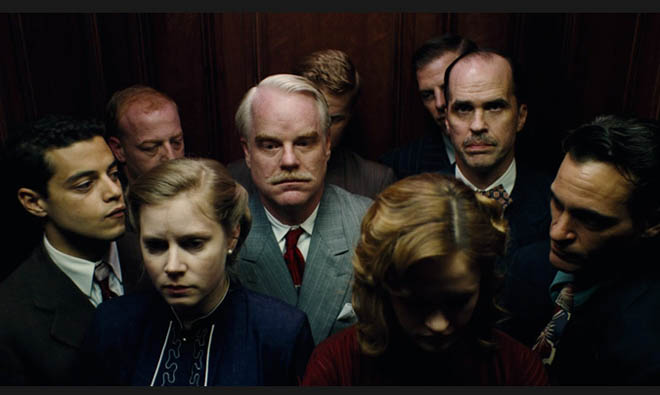
Paul Thomas Anderson’s The Master presents a powerful and precise portrait of a troubled, violent, and often soused drifter named Freddie Quell (Joaquin Phoenix), suffering from shellshock after WWII he eventually, in 1950, runs into the charismatic cult leader Lancaster Dodd (Philip Seymour Hoffman). Mentoring Freddie, Dodd brings him into his religious movement, the Cause––a simulacrum for Scientology, and Dodd of L. Ron Hubbard.
A polarizing but prominent director, Anderson is, as Rolling Stone’s Peter Travers suggests, “…a rock star; the artist who knows no limits.” Travers goes on to say rather astutely that “ [The Master is] written, directed, acted, shot, edited and scored with a bracing vibrancy that restores your faith in film as an art form, The Master is nirvana for movie lovers. Anderson mixes sounds and images into a dark, dazzling music that is all his own.”
A compelling, challenging, maddening and invigorating film, cinematographer Mihai Mălaimare Jr. (who deservedly won many awards for his fine work here), presents a fluid and unbroken chain of high contrasting imagery. This is one haunting and lamentable honey of a picture and emblematic of an astonishing and daring decade at the cinema.
Author Bio: Shane Scott-Travis is a film critic, screenwriter, comic book author/illustrator and cineaste. Currently residing in Vancouver, Canada, Shane can often be found at the cinema, the dog park, or off in a corner someplace, paraphrasing Groucho Marx. Follow Shane on Twitter @ShaneScottravis.